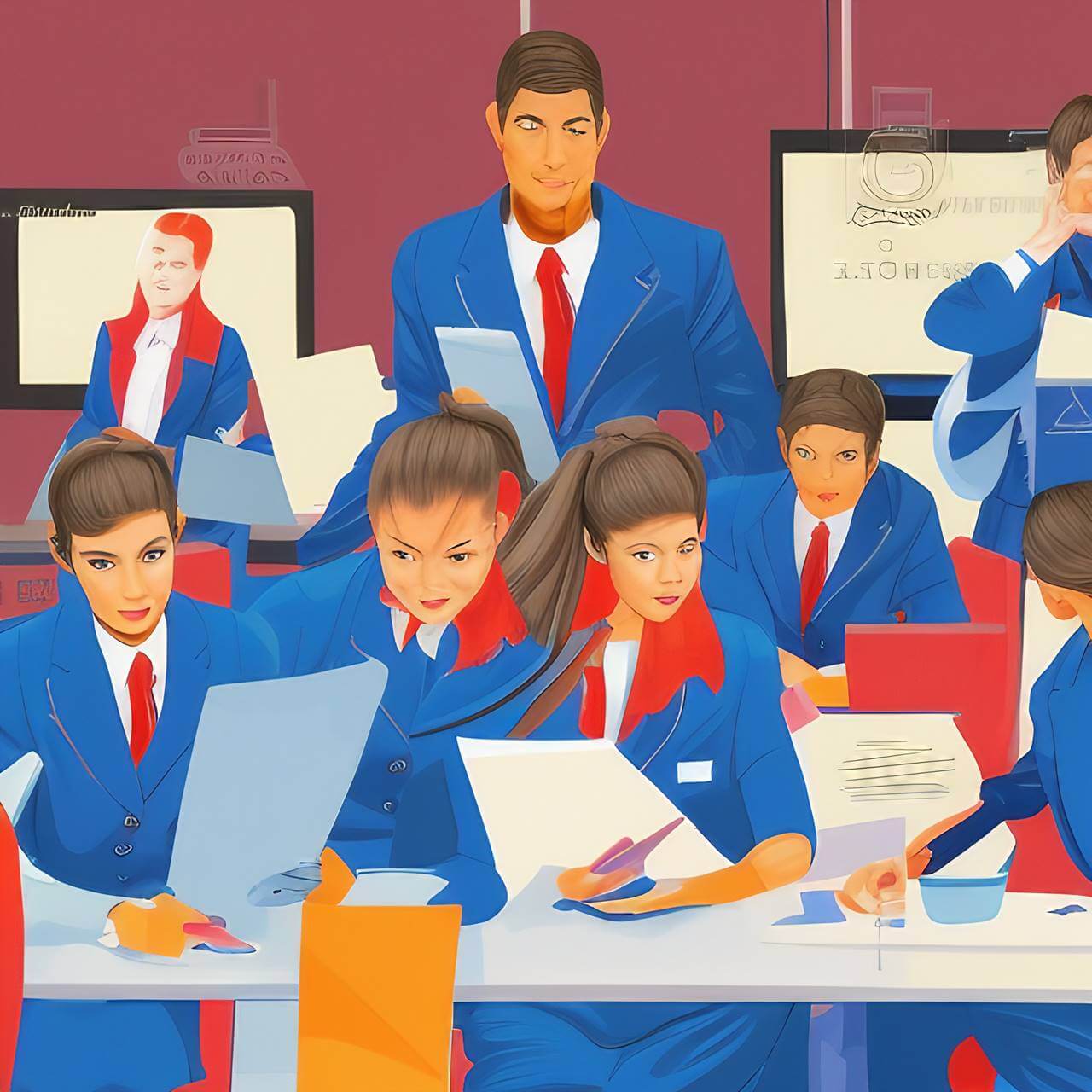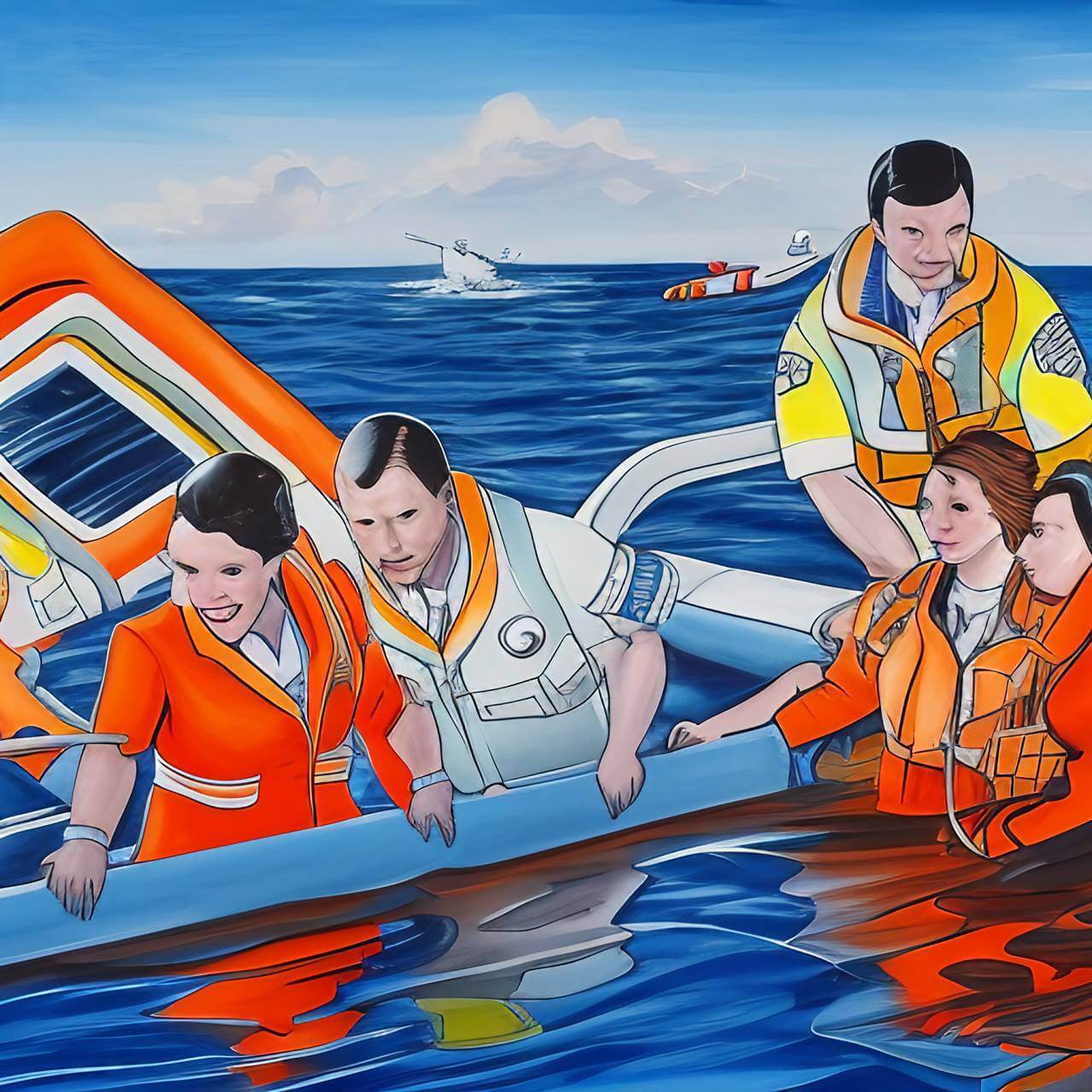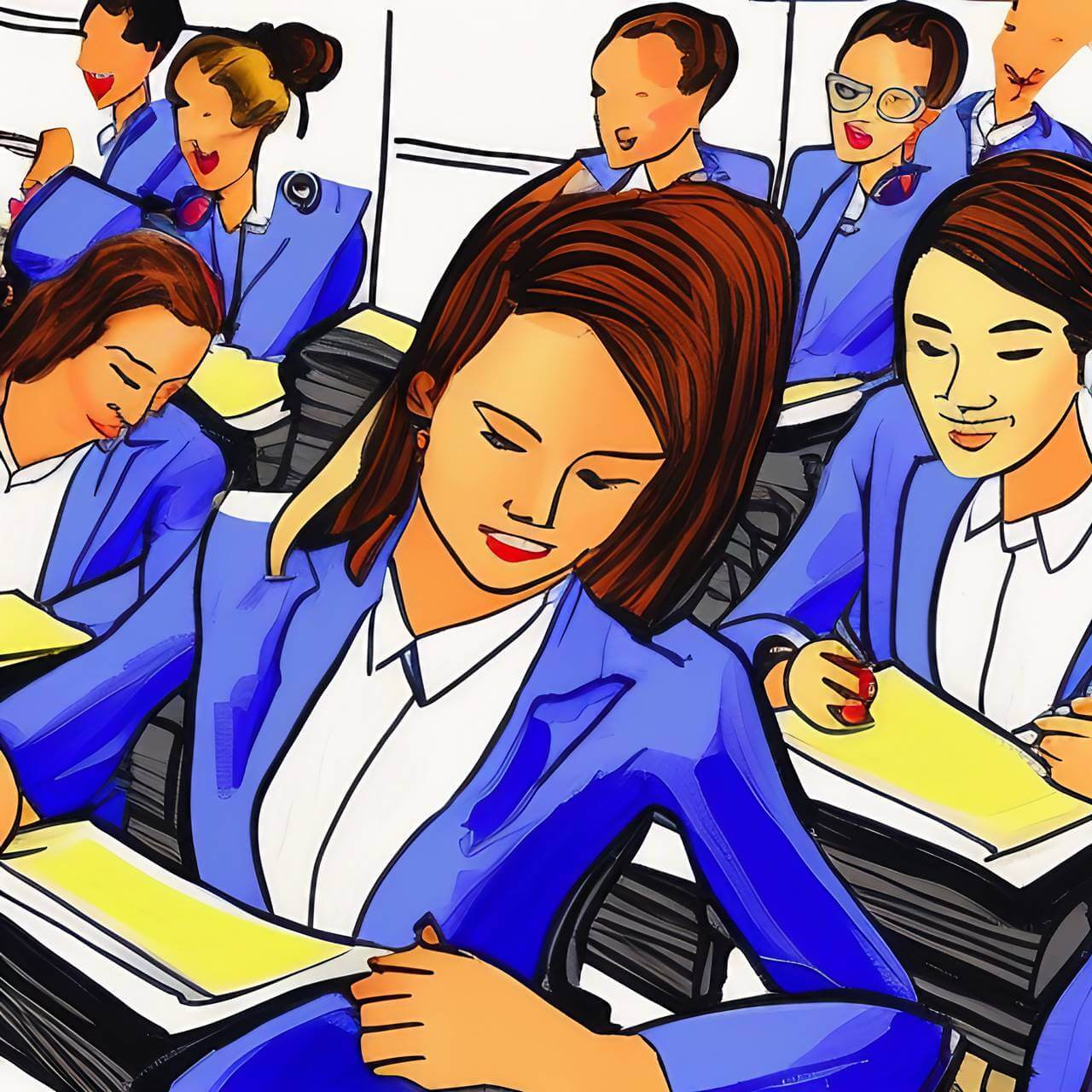Have you recently decided that you want to become a flight attendant? If so, the most important thing is how can you prepare for flight attendant training. During the training program, you will learn everything you need to know about being a cabin crew member, from safety procedures to in-flight service. You will also be put through various emergency simulations to ensure that you are well-prepared for any situation that may occur while you are on board.
Also Read: How to Answer: Why Would You Be a Good Flight Attendant?
Although emergency procedures are very important, they only make up a small portion of what you will be taught while in training. Preparation is the key to being successful in flight attendant training. With that said, below are tips on preparing for flight attendant training.
Contents
- 1. Research the Airline you will be training with
- 2. Get in shape
- 3. Familiarize yourself with Aviation Terms
- 4. Save as much money as you can
- 5. Learn about the Job before attending Training
- 6. Purchase the necessary supplies
- 7. Arrive to your Training Sessions on time
- 8. Build your Stamina
- 9. Be prepared for Scrimmage Days
- 10. Have your questions ready
- 11. Get plenty of rest
- 12. Understand the time commitment
- Video: Becoming Singapore Airlines Cabin Crew: A Training Journey
- Frequently Asked Questions
- 1. How long does the training program last?
- 2. What is the curriculum like?
- 3. Are there any resources available to help me better understand the material?
- 4. What kind of exams do I need to pass?
- 5. How many days am I required to attend training each week?
- 5. What should I wear to training?
- 7. Will I receive feedback after completing my training?
- 8. Will I be able to receive salary while attending training?
- 9. What kind of certificate do I receive after completing the training?
- 10. What are some of the practical scenarios that I will be tested on?
- 11 What questions should I ask my instructors during questioning periods?
- 12. Is it important to get plenty of rest while attending the flight attendant training program?
- 13. Are there any specific skills I should focus on developing while in training?
- 14. Will I receive any additional support once I start working?
- Summary

1. Research the Airline you will be training with
Each airline has its own guidelines and expectations for flight attendants. It is important that you research the airline you will be training with so that you can be familiar with their procedures. This will make the transition into training much smoother.
Getting to know the airline also means getting to know the region where the airline is based including their culture and customs. All these will come into play as to how you’re expected to conduct yourself as an individual and a flight attendant representing the airline and in a way representing the hospitality of the region.
2. Get in shape
One of the most important things you can do to prepare for flight attendant training is to get your body. Why? Because during training, you’ll be on your feet for long periods of time each day, and you’ll need to be able to comfortably lift emergency equipment and assist passengers as needed. If you’re not in good physical shape, you may struggle to complete the training program. This will also be a good time to start building a healthy lifestyle that you will surely need to maintain once you finish the training and become a full-fledged flight attendant.
3. Familiarize yourself with Aviation Terms
If you’re not already familiar with aviation terminology, now’s the time to learn it. During training, you’ll need to be able to understand and use technical jargon when interacting with passengers and co-workers alike.
A great way to become familiar with aviation terms is to read articles on aviation websites or listen to podcasts about flying—both commercial and private aviation. You can also check out YouTube videos about flying and airplanes; just make sure they’re from reputable sources, such as airline pilots or mechanics.
Learn More: How to Become a Flight Attendant in UK
4. Save as much money as you can
One of the most important things to keep in mind when preparing for flight attendant training is that depending on the airline that you applied, you may not be getting paid during the training period. For those airlines who already pay you for training, your salary is not necessarily as big as the normal flight attendant salary as you are still on training and not earning flying pay, layover allowance, etc. It’s essential that you have enough money saved up to cover your living expenses during this time. Try to cut back on unnecessary expenses and put away as much money as you can before starting training.
Building a healthy financial habit such as having savings before becoming a flight attendant is also a good practice to have once you earn your flight attendant salary. The job of the flight attendant is very unique and fast-paced and having a savings mindset will help you better prepare for your future should you wish to move on to another career.
5. Learn about the Job before attending Training
Although some people believe that they know what flight attendants do, most do not have an accurate understanding of what the job entails. Learning about the job before attending training is important because it will allow you to know exactly what to expect. Being prepared for what is to come can make training much easier and less stressful for you.
There are plenty of ways that you can go about learning about the duties and responsibilities of a flight attendant before attending training. For starters, you can read online articles or books on the topic. You can also talk to individuals who currently work as flight attendants or individuals who have successfully completed training in the past.
Also Read: Flight Attendant Travel Blogger – Blog about My Travel Experiences

6. Purchase the necessary supplies
There are certain supplies that you must have before attending flight attendant training. First, you will need a professional-looking carry-on bag or suitcase. In most cases, your carry-on bag should be black or another dark color. You will also need to purchase all of the necessary clothing items for your uniform, including but not limited to pants, skirts, blouses, shoes, etc. All of these clothing items must meet the standards set by your chosen airline; therefore, you may want to wait until after your interview before making any purchases.
Last but not least, it is important to have copies of your important documents with you at all times while in training and while working as a flight attendant. These documents include your birth certificate, social security card, driver’s license or other photo identification card, passport (if applicable), high school diploma or GED certificate (if applicable), and a college degree (if applicable).
7. Arrive to your Training Sessions on time
One mistake that some make is failing to arrive at their training sessions on time; however, this is something that should be avoided at all costs! Not only does it show disrespect to those conducting the training session, but it may also cause you problems down the road when attempting to find employment as a flight attendant.
Learn More: How to Become a Flight Attendant in USA
8. Build your Stamina
As mentioned above, during training you’ll be on your feet for long periods of time each day—sometimes up to 12 hours at a time! To make sure you can handle the physically demanding nature of the job, start working on building your stamina now. Go for regular runs or walks, hit the gym 3-5 times per week, and take stairs whenever possible. The more fit you are, the easier it will be to complete the training without becoming too exhausted.
9. Be prepared for Scrimmage Days
Scrimmage days are when you will put your training into practice. You will go through mock scenarios and solve problems as a team. It is important to be prepared for these days so that you can demonstrate your skillset. Some examples of practical scenarios:
- Safety and Emergency Scenario: Evacuating the plane on an emergency; managing on board fire due to passenger smoking inside the lavatory
- Medical Scenario: Giving CPR
- Security Scenario: Managing drunk, physically aggressive passenger; managing security threats receive on board
- Service Scenario: serving passengers with grace and elegance
Again, depending on the airline, you could have more tests than what is written above. Not to worry because ample training, theory and practical, will be provided to ensure you capture what is necessary to meet the airline’s standards.

10. Have your questions ready
At the end of each day, you will have an opportunity to ask your instructors questions about the material covered that day. Having your questions ready will help you get the most out of this time.
Some questions you may want to ask include:
- What was the most important thing I learned today?
- What did I find most confusing today?
- Are there any resources that can help me better understand the material?
Your instructors are there to help you, so don’t be afraid to ask for clarification if you need.
11. Get plenty of rest
Preparing for flight attendant training can be difficult and stressful; however, it is very important that take care of yourself both mentally and physically. One way that both can be accomplished is by getting plenty of rest. Sleep allows our bodies to recharge and refuel, so we are ready for whatever comes our way. It also helps improve our moods, which can be very beneficial when attending long and detailed pieces of training sessions.
12. Understand the time commitment
One final step in preparing for flight attendant training is understanding the time commitment. Flight attendant training can last anywhere from several weeks to several months, depending on the airline. It is important that you understand how long training will take so that you can make arrangements in your personal life. For example, if you have young children, you may need to find someone to care for them while you’re away at training.
Learn More: Cabin Crew Layover – Maximizing Hotel Layovers as a Flight Attendant
Video: Becoming Singapore Airlines Cabin Crew: A Training Journey
This video will be taking you through a training journey, from the day you start your training, to the day you become a fully-fledged cabin crew member for Singapore Airlines. Keep in mind that this video is specific to Singapore Airlines’ training program and other airline’s training modules may vary.
Training for Singapore Airlines is done full-time, 12-week program that is conducted at their state-of-the-art training center. After successfully completing the training program, you will be deployed on Singapore Airlines’ fleet of aircraft where you will put your skills to the test and get to experience first-hand the excitement of working in one of the world’s leading airlines. Hopefully this video has given you a better insight into what it takes to become a cabin crew member.
Frequently Asked Questions
1. How long does the training program last?
The training program can last anywhere from a few weeks to a few months, depending on the airline. It is important that you understand how long training will take so that you can make arrangements in your personal life.
2. What is the curriculum like?
The curriculum will generally cover topics related to safety, emergency procedures, customer service, and other important aspects of a cabin crew’s job. Depending on the airline, you could have more tests that what is written above. Additionally, your training program may also include interactive simulations of in-flight scenarios such as handling medical emergencies or dealing with unruly passengers.
3. Are there any resources available to help me better understand the material?
Yes! Your instructors are there to help you understand the material so don’t be afraid to ask for clarification if you need it. Additionally, many airlines have online resources like videos or tutorials that can assist in furthering your understanding of flight attendant training curriculums. Your success in this role begins with
4. What kind of exams do I need to pass?
Airlines typically require you to pass written and practical exams in order to become a flight attendant. Written exams can include safety, customer service, and general aviation knowledge while the practical exam may involve demonstrating proper evacuation techniques or other emergency procedures. If your hiring airline offers any additional tests, they should be noted during the training process.
5. How many days am I required to attend training each week?
The majority of the training programs require you to attend the training sessions 5 days a week, with some exceptions depending on the airline. You should confirm your weekly schedule with your instructors during the early stages of your training. Additionally, you may also receive assignments or have additional studies throughout the week so it is important to plan accordingly and manage your time well.
5. What should I wear to training?
Usually, airline companies provide a training crew uniform when you report to training class. Wearing the uniform will help you to get into the spirit of your new role. With that said, comfortable clothing is also recommended since lectures and simulations can be quite intensive. If you are unsure what should be worn in class, ask your instructors for further clarification.
7. Will I receive feedback after completing my training?
Yes! After successfully completing your training program, you should receive written evaluations from your instructor with detailed feedback on areas of improvement and strengths. This will help you ensure that you have all the skills necessary to become a successful flight attendant. #
8. Will I be able to receive salary while attending training?
Some airlines may already provide an allowance for training. So make sure to check with your hiring airline to see
9. What kind of certificate do I receive after completing the training?
Upon successful completion of the flight attendant training program, you will typically be issued a Cabin Crew Attestation Certificate. This is recognized as proof that you have completed the required training and are now capable of performing all duties related to being a cabin crew member safely and effectively.
10. What are some of the practical scenarios that I will be tested on?
Practical scenarios will vary depending on the airline, but could include scenarios such as how to handle medical emergencies during a flight, extinguishing fires or smoke in the cabin, dealing with unruly passengers, and evacuating an aircraft during an emergency. You may also be tested on other important safety procedures like performing security checks and providing customer service.
It is important to remember that airlines have different standards for their practical exams so make sure to check with your hiring airline for what exactly you need to know and practice.

11 What questions should I ask my instructors during questioning periods?
It is important to take advantage of the questioning periods during training in order to gain a better understanding of all aspects related to being a flight attendant. Some questions you can ask your instructors include:
- What are potential safety risks that I should be aware of?
- How do I properly handle difficult passengers?
- Are there any additional documents that I need for my job as a flight attendant?
Additionally, feel free to ask them about their experience and tips on how to succeed within the role.
12. Is it important to get plenty of rest while attending the flight attendant training program?
Absolutely! Being well-rested is vital to ensure you are alert and able to process all of the information during training sessions. Flight attendants must be able to react quickly in stressful situations, so it is important to get plenty of rest before attending class. Additionally, make sure that you eat healthy meals and stay hydrated throughout your training program as this will help keep your energy levels up.
13. Are there any specific skills I should focus on developing while in training?
Absolutely! During the flight attendant training program, it is critical that you develop customer service skills such as communication and empathy. You should also practice problem solving and decision making skills since these are essential for responding to emergencies quickly and efficiently.
14. Will I receive any additional support once I start working?
Most airlines offer ongoing professional development programs so that employees can continue to develop their skills and knowledge even after they have finished their initial training. Additionally, experienced flight attendants can also provide mentorship and guidance to newcomers who may need assistance with adapting to their new role.

Summary
Flight attendant training is no joke. It’s intense, and it can be really tough to make the cut. But if you’re up for the challenge, there are a few things you can do to prepare yourself mentally and physically for the process.
First, get in shape! Most airlines have very strict height and weight requirements, so start hitting the gym now if you need to slim down or put on some muscle.
Take note that after every stage of the training process, your knowledge on aviation safety and regulations, general customer service skills, etc. will be put to a test, either practical, written or both.
So stay positive and don’t give up. With enough preparation and determination, you can achieve your goal of becoming a flight attendant. Are you ready to take on this challenging but rewarding career?
Overall, flight attendant training can be both a rewarding and challenging experience. With the right attitude and preparation, you will be able to make the most out of this opportunity! By understanding what goes into flight attendant training ahead of time, you can ensure a successful experience that sets you up for success as a cabin crew member. Good luck!